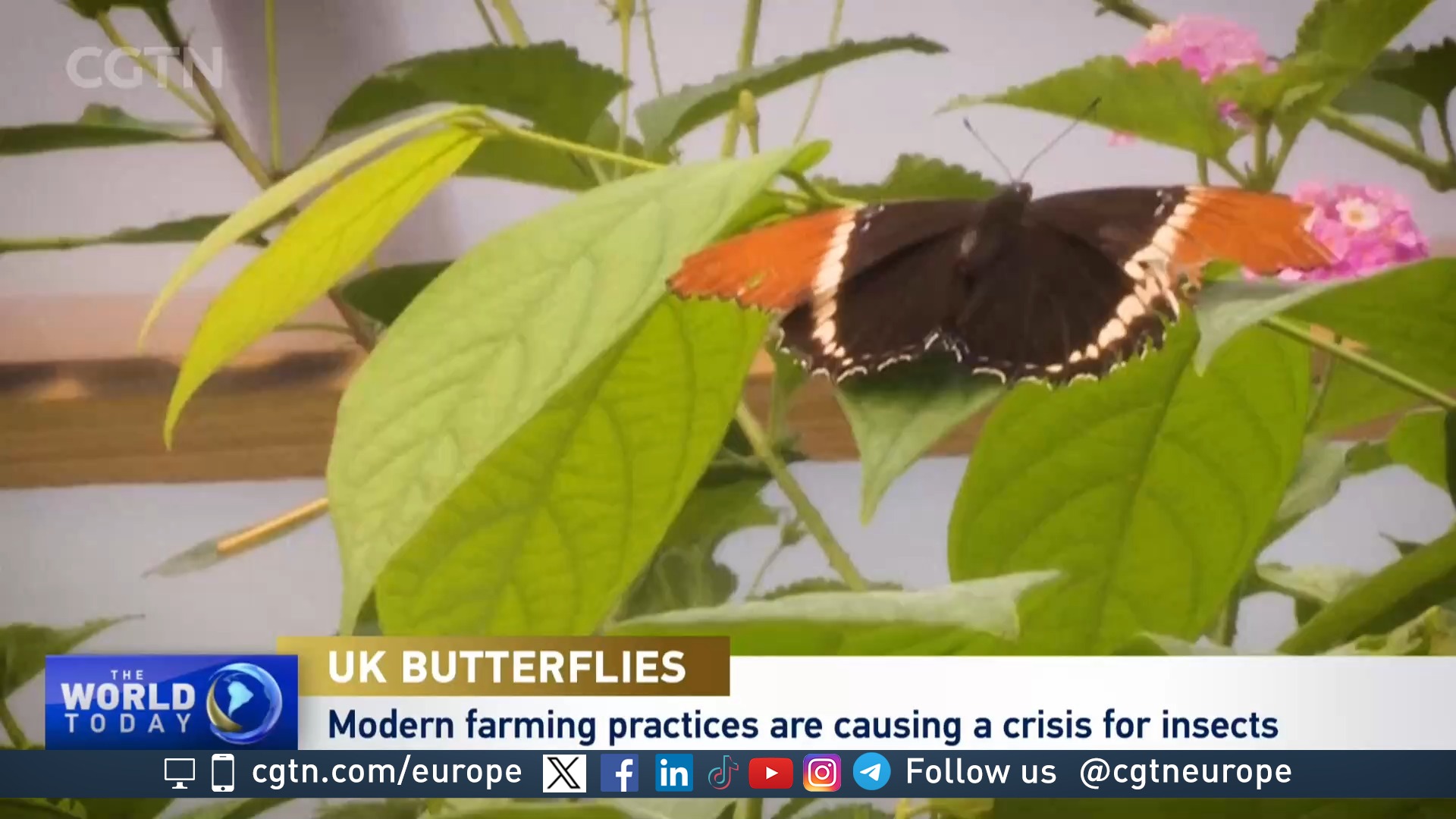02:57

Wildlife lovers across the UK have been encouraged to take part in the "Big Butterfly Count" this summer, the world's largest survey of the colorful flying insects.
The butterfly house at London Zoo is full of beautiful specimens. In a replica of their natural habitat, it is a place where they can thrive away from predators and other threats. But it is more difficult for them to do so in the wild, hence it should come as no surprise that butterflies are becoming harder to find.
READ MORE
Inside Kherson - a city shattered by flood damage and landmines
What Chinese treasures are in the British museum?
Is the Fukushima treated water safe?
This has been Amy Walkden's and Emma Grice's experience in their village of Abbotskerswell in southwest England.

Some families with young children are volunteering to go on nature walks with the aim of spotting butterflies. /CGTN
Some families with young children are volunteering to go on nature walks with the aim of spotting butterflies. /CGTN
'Sensitive indicators'
After school, the two women often take their children and their school friends on butterfly spotting outings. It is fun to go on a nature walk but they are also doing it to provide data for the charity Butterfly Conservation.
"Having a yearly record of what is around and what is not around is really good scientific data to indicate changes like global warming and habitat destruction," said Walkden. "Butterflies are sensitive indicators of what's going on. So it's really important."
Monitoring takes place all year round and the charity has encouraged people to take part in its Big Butterfly Count survey this summer. It simply involves entering information into a free smartphone app to log the number of butterflies the volunteer spots within a 15-minute window.

Monitoring takes place all year round and the charity has encouraged people to take part in its Big Butterfly Count survey this summer. /CGTN
Monitoring takes place all year round and the charity has encouraged people to take part in its Big Butterfly Count survey this summer. /CGTN
What is causing the decline?
Data from volunteers helped produce Butterfly Conservation's latest report. Lead author and scientific director of the charity Richard Fox says its findings are alarming. It has found that 80 percent of species are in decline, and butterflies are no longer present on average in nearly half the areas they were found 50 years ago.
"The major causes of the decline are what we humans have done to the landscape in the UK over the past 50, 60, 70 years," said Fox.
"That's things like the intensification of agriculture, which is not just chemicals that go into pesticides and fertilizers, but also changes to the landscape [such as] removing hedgerows, maximizing the space for growing crops, and pushing nature out of farmland," he explained.

A 2020 study estimated insect numbers have dropped worldwide by five to 10 percent in the past 150 years. /CGTN
A 2020 study estimated insect numbers have dropped worldwide by five to 10 percent in the past 150 years. /CGTN
Not limited to the UK
Back in Abbotskerswell, the Walkdens are also raising caterpillars in their garden. Young Robin already has a good sense of how important this is.
"If we don't have any butterflies and all the buzzy things then the things that eat butterflies won't have any food, and the things that eat them," she says in ad. "It's part of the food chain and is basically what we eat and if there is none of them, we'll starve, and we won't really be able to survive, will we?" she pointed out.
The decline in butterflies and other insects is not limited to the UK, with a 2020 study estimating insect numbers have dropped worldwide by 5-10 percent in the past 150 years.
The UK government now includes butterfly numbers as an official indicator of biodiversity, and the hope is that with proper monitoring and other efforts to protect threatened species, the decline here could be halted.
Subscribe to Storyboard: A weekly newsletter bringing you the best of CGTN every Friday
Source(s): AFP